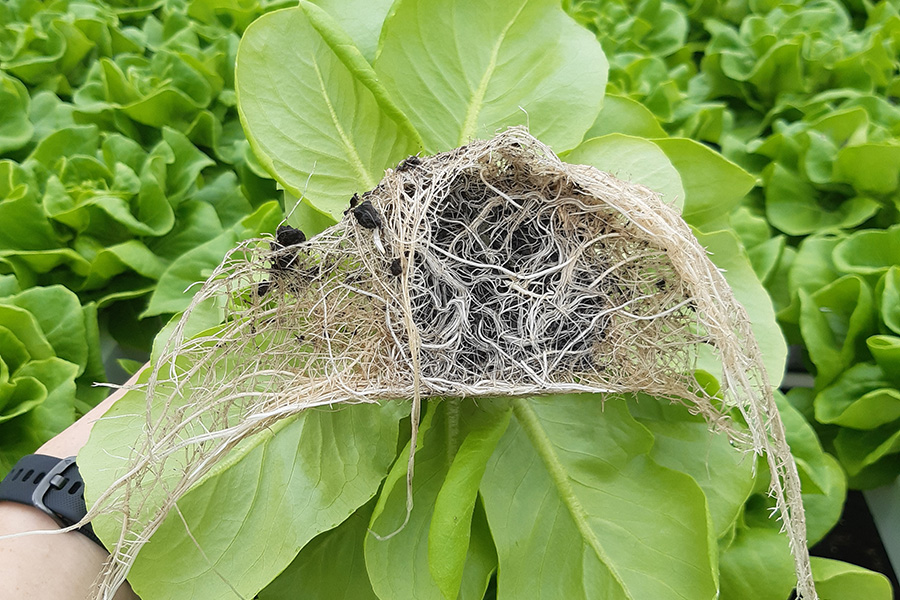- English

Proefstation, a leading agricultural research center in Belgium, initiated a study in May 2023 to assess the effectiveness of Moleaer nanobubble technology in controlling Phytophthora cryptogea, a notorious pathogen impacting root health and development, on hydroponically grown lettuce variety Fairly. The study focused on comparing Moleaer nanobubble treatment, maintaining oxygen levels at 20 ppm, against alternative treatments and a control group with no treatment.
Anaerobic pathogens such as Phytophthora and Pythium significantly affect root development, thereby impacting crop growth and yield. Consequently, well-oxygenated water is a crucial factor for growers, particularly in hydroponic conditions. Temperature plays a vital role in the spread of these pathogens, with optimal growth observed between 25 and 30 degrees Celsius (77ºF to 86 ºF) for both Pythium and Phytophthora. Therefore, it becomes even more critical for growers to maintain good water quality when temperatures rise to control the spread of these pathogens.
A trial was conducted to compare the effect of nanobubble-enriched water with a saponin-based treatment (a plant-based compound with potential anti-pathogenic properties) and with a control with no treatment. The plants were moderately infested with Phytophthora artificially, and additional stress conditions were induced by removing roof screening to keep elevated temperatures (25 ºC or 77 ºF). Higher temperatures are directly related to the development and spread of pathogens, so the objective was to measure the impact of the treatments on stopping or reducing the infection at high temperatures and under conditions.
Nanobubbles impact root health and development, yield, and consistent growth.
The roots on the plants in the section treated with nanobubble-enriched water exhibited superior health compared to both the control and the saponins treatment at the inlet and at the end of the line (see photos below).